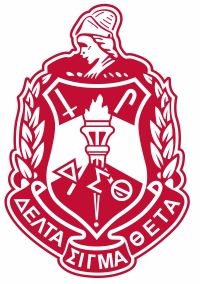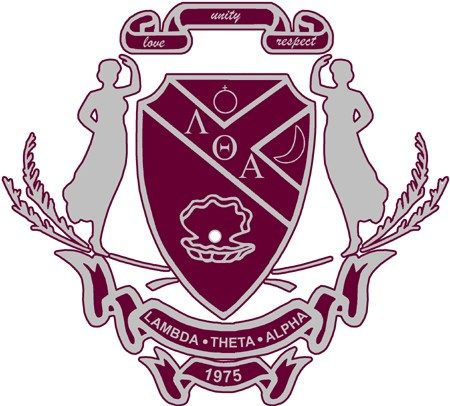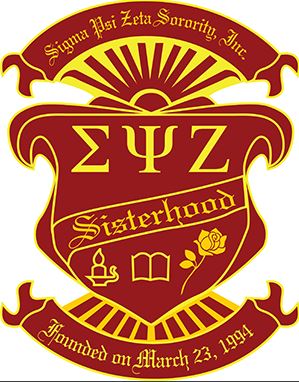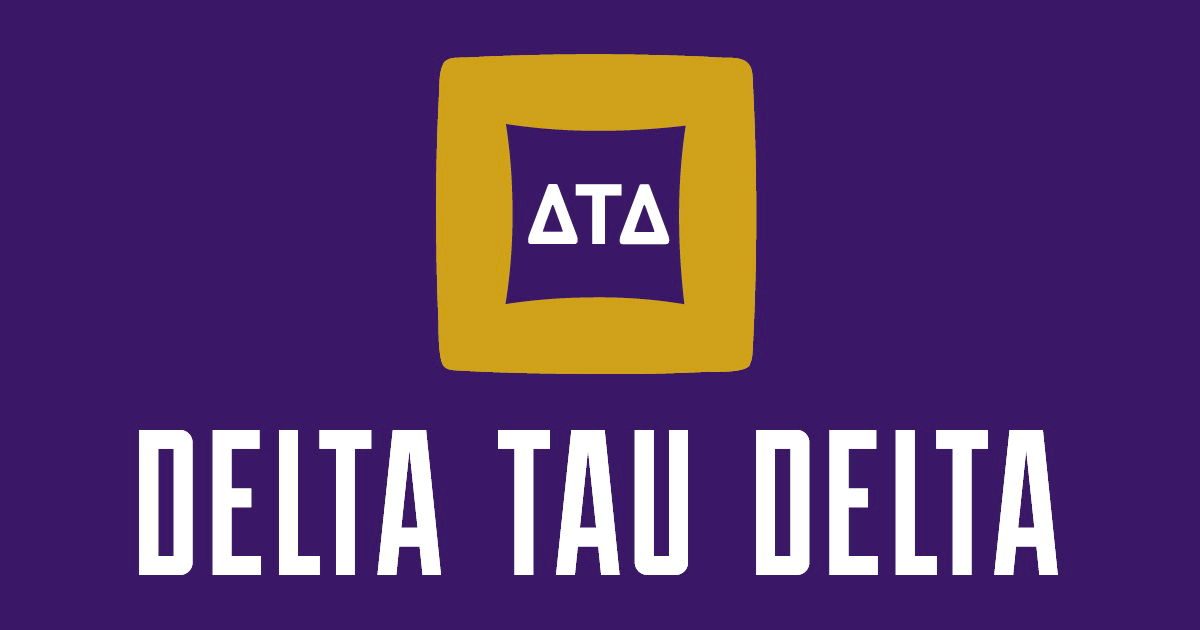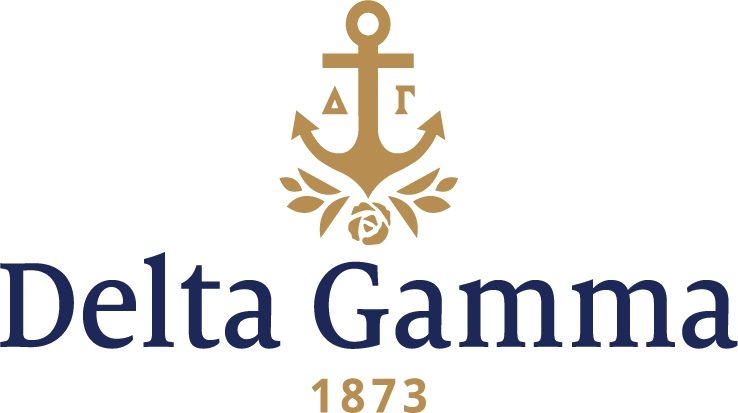FRATERNITY AND SORORITY CHAPTERS AT VILLANOVA
In 1902, under the guidance of Father Matthew Cochran, a small group of students from St. Mary’s Hall founded the first fraternity at Villanova with the purpose of studying the classics and promoting social interactions. More than a century later, fraternities and sororities thrive at Villanova, with missions that seek to evoke leadership qualities in members through engagement in academic, service, philanthropic and social initiatives.
Intercultural Greek Council (IGC)
Our IGC community includes organizations from the National Pan-Hellenic Council (NPHC), National Association of Latino Fraternal Organizations (NALFO), National Multicultural Greek Council (NMGC) and National Asian/Pacific Islander Panhellenic Association (NAPA) fraternities and sororities at Villanova.
Intercultural Greek Council Organizations at Villanova
ABOUT
Alpha Kappa Alpha Sorority was founded on January 15, 1908 on the campus of Howard University in Washington D.C. Alpha Kappa Alpha Sorority, Inc. became the first black Greek-letter organization established by and for college-educated African American women. Today, Alpha Kappa Alpha's legacy continues as we fulfill its purpose: to cultivate and encourage high scholastic and ethical standards, to promote unity and friendship among college women, to study and help alleviate problems concerning girls and women in order to improve their social stature and to be of Service to All Mankind.
PHILANTHROPY
Philanthropic Partner: Women's healthcare and wellness
ABOUT
Since its founding on December 4, 1906, Alpha Phi Alpha Fraternity, Inc. has supplied voice and vision to the struggle of African-Americans and people of color around the world.Alpha Phi Alpha, the first intercollegiate Greek-letter fraternity established for African-Americans, was founded at Cornell University in Ithaca, New York by seven college men who recognized the need for a strong bond of Brotherhood among African descendants in this country.
The Fraternity initially served as a study and support group for minority students who faced racial prejudice, both educationally and socially, at Cornell. The Jewel founders and early leaders of the Fraternity succeeded in laying a firm foundation for Alpha Phi Alpha's principles of scholarship, fellowship, good character, and the uplifting of humanity.
More than 300,000 men have joined the ranks of Alpha Phi Alpha since the organization’s founding in 1906. The Fraternity is international with local chapters located throughout the United States, District of Columbia, the Caribbean, Europe, Asia and Africa. Today, Alpha Phi Alpha continues its commitment to the African American community through the Fraternity's Education and Building foundations which provide scholarships to outstanding students and shelter to underprivileged families. The Fraternity also has dedicated itself to training a new generation of leaders with national mentoring programs and partnerships designed to ensure the success of our children and youth.
PHILANTHROPY
Philanthropic Partner: Brother's Keeper Senior Care; Go to High School, Go to College
ABOUT
Delta Sigma Theta Sorority, Incorporated is an organization of college-educated women committed to constructive development of its members, and to public service, with a primary focus on the black community.delta sigma theta
Delta Sigma Theta Sorority, Incorporated was founded on January 13th, 1913 on the campus of Howard University, by twenty-two illustrious women. We have over 1,000 chapters located all over the world, including Japan, Bahamas, Germany, England, and more. The major programs of the sorority are based upon the organization's Five Point Programmatic Thrust: Educational Development, Economic Development, International Awareness and Involvement, Political Awareness and Involvement, and Physical and Mental Health.
The Prestigious Upsilon Tau Chapter was chartered on April 22nd, 2017 on the campus of Villanova University by twenty-three women. The Upsilon Tau chapter is dedicated to serving our communities both on- and off-campus.
PHILANTHROPY
Philanthropic Partner: Five-Point Programmatic Thrust
ABOUT
Kappa Alpha Psi® is the second oldest existing collegiate historically Black Greek letter fraternity and the first intercollegiate fraternity incorporated as a national body. It is the first Greek letter organization to establish its Alpha Chapter on Indiana University’s campus. The fraternity has over 250,000 members with 700 undergraduate and alumni chapters in nearly every state of the United States, and thirteen international chapters in Nigeria, South Africa, Bermuda, Bahamas, U.S. Virgin Islands, Panama, United Kingdom, Germany, South Korea, Dominican Republic, Abu Dhabi, Canada and Japan.
ABOUT
ABOUT
PHILANTHROPY
Philanthropic Partner: St. Jude's Children's Research Hospital, LTA FoundationIn 2014, the sorority expanded its partnership with St. Jude by becoming an official partner of the annual St. Jude Walk/Run to End Childhood Cancer, which brings communities together across the nation during Childhood Cancer Awareness Month to raise funds for the hospital. The sorority has repeatedly exceeded its sponsorship commitments and looks forward to this event every year.
ABOUT
Sigma Psi Zeta Sorority, Inc. is a progressive, multicultural Greek Organization that provides a means to success and support for womxn, particularly womxn of color. The sorority builds on the unity of strong and independent leaders to affect change in our organization, our campuses, and our local communities. Sigma Psi Zeta is an official partner of It's On Us, the White House Initiative to end sexual assault on college campuses.We aim to be a community of pioneers and innovators offering opportunities for womxn to develop professional and interpersonal skills in service of education, cultural awareness, and our national philanthropy.
PHILANTHROPY
Philanthropic Partner: Domestic Violence Awareness
Interfraternity Council
Organizations (IFC)
The IFC is comprised of an executive board and representatives from each IFC fraternity at Villanova. This group serves as a governing body, sponsors fraternal programming needs, offers leadership development, facilitates communication throughout the fraternal system, and acts as a liaison between fraternities and the University.
IFC Member Chapters at Villanova
ABOUT
The Zeta Epsilon chapter of Beta Theta Pi chartered at Villanova University in the spring of 1995. As a chapter of Beta Theta Pi, we are proud to say that we have been named as the “number one fraternity for future CEOs.” During our time on Villanova’s campus, we have fully committed ourselves to the mission of “building principled men for a principled life.” Men who pass through our chapter will be taught how to be gentlemen and leaders—not only in the classroom, but in every facet of their lives moving forward.
PHILANTHROPY
Philanthropic Partner: Miracle for Molly (Rett Syndrome Research), Beta Theta Pi Foundation
Since 2017, the Zeta Epsilon chapter of Beta Theta Pi has partnered with Miracle for Molly, an initiative started by an alumnus of our chapter. This initiative raises awareness and funding for the Rett Syndrome Research Trust. The Rett Syndrome Research Trust (RSRT) was launched in 2008 with the goal of driving the development of treatments and cures for Rett Syndrome and related MECP2 disorders. Our chapter is proud to support one of our own and his daughter as they continue to search for a cure for Rett Syndrome.
ABOUT
Delta Chi joined the Villanova IFC in Spring 2022. Delta Chi currently has over 110 chapters and colonies located across the United States and Canada and over 100,000 living members.
Delta Chi was founded in 1890 at Cornell University. Originally founded as a law fraternity that allowed initiates to hold dual membership with other fraternities, Delta Chi became a single membership general fraternity beginning in 1922. Delta Chi was one of the first fraternities to take a stand against hazing, abolishing traditional “hell week” practices in 1929. Members of Delta Chi believe that membership in the organization will help promote friendship, develop character, advance justice, and assist in the acquisition of a sound education. Delta Chi prides itself on these four core values and the belief that they will help create the brotherhood of a lifetime.
PHILANTHROPY
Philanthropic Partner: The V Foundation for Cancer Research
Delta Chi is proud to have a philanthropic partnership with The V Foundation for Cancer Research. Endowed by ESPN, The V Foundation operates with no overhead costs, which allows all donations to be donated directly to cancer research. Delta Chi has been raising money for the V Foundation since 2006. As proud partners, we stand with them in the fight against cancer, by which we have all been affected in some way – whether personally, or through a friend or family member. Delta Chi is continuously raising the stakes in fundraising efforts to make a growing impact on the cause and our chapters have raised $2 million since the beginning of the partnership with the V Foundation.
ABOUT
Delta Tau Delta was founded in 1858 at Bethany College in what is now West Virginia. Today, Delta Tau Delta is one of the largest fraternities in the United States comprised of more than 130 active chapters. All Delts live by the shared mission of being “Committed to Lives of Excellence,” exemplifying our organization’s core values of Truth, Courage, Faith and Power.
The Zeta Theta chapter at Villanova has a storied history and has the distinction of being the first Greek organization on campus, receiving our national charter in 1971. Our membership is comprised of men of all creeds and colors representing all four of Villanova’s academic schools.
PHILANTHROPY
Philanthropic Partner: JDRF, EROC
JDRF has been the national philanthropic partner of Delta Tau Delta since 2012. This partnership engages Delta Tau Delta’s more than 130 chapters and colonies on college campuses nationwide to work closely with local JDRF chapters to help raise funds and awareness for T1D. Since the partnership began, Delta Tau Delta chapters have raised more than $830,000 for T1D research. Additionally, Delta Tau Delta undergraduates and alumni have contributed more than 38,000 hours of service through local JDRF chapter events.
ABOUT
Founded on Nov. 4, 1834, at Williams College, Delta Upsilon is the sixth oldest men’s college fraternity and the first to be founded as non-secret. DU's four founding principles are The Promotion of Freindship, The Development of Character, The Diffusion of Liberal Culture, and The Advancement of Justice.
PHILANTHROPY
Philanthropic Partner: Global Service Initiative
Part philanthropy, part service, GSI builds global communities and better men.
ABOUT
At Lambda Chi Alpha, we embrace men regardless of background and differences, and we empower them to become a better version of themselves by finding their reason. From day one, members are treated as equals and fully experience Lambda Chi Alpha and learn what it means to lead with loyalty and purpose. We believe that sacrifices borne from service build character and strength in the men who bear them.There are more than 180 Lambda Chi Alpha chapters, each challenging and empowering men to become better versions of themselves in every season of life. Since 1909, our legacy has deepened when each generation equips even more young men to redefine who we are and who we can be for others, generation after generation. Our fraternity seeks to foster this legacy of leadership through enduring relationships, strong mentorship and intensive instruction on our history, values and code of conduct.
PHILANTHROPY
Philanthropic Partner: Feeding America; The Jed Foundation; Big Brother, Big Sister
ABOUT
Phi Sigma Kappa is a lifelong brotherhood dedicated to the betterment of the individual, the university community and our world by giving its members opportunities to develop leadership skills, participate in service to others, achieve academic excellence, experience cultural diversity and practice personal integrity.PHILANTHROPY
ABOUT
Pi Kappa Phi was founded on the premise of creating leadership opportunities for our members. Our founders exemplified leadership in the classroom, on the athletic field, in campus politics and within the community. Leadership is the very root of our organization and it is the concept of leadership that shall guide us to our future. Over the course of a century, a fraternity with humble beginnings has grown into a brotherhood of more than 120,000 strong.
PHILANTHROPY
Philanthropic Partner: The Ability Experience
The Ability Experience, formerly Push America, is a 501(c)(3) nonprofit organization that serves people with disabilities. The Ability Experience was founded in 1977 as the national philanthropy of Pi Kappa Phi Fraternity with the purpose of instilling lifelong service in its members and enhancing the quality of life for people with disabilities. The Ability Experience has grown into a nationally recognized nonprofit with numerous programs educating undergraduates, alumni and communities about the abilities of people with disabilities.
ABOUT
Headquartered in Lexington, Virginia, Sigma Nu Fraternity was founded in 1869 at Virginia Military Institute in Lexington. Sigma Nu currently has over 160 active chapters and colonies on college campuses throughout the United States and has initiated over 235,000 members since its founding.PHILANTHROPY
ABOUT
Sigma Phi Epsilon (SigEp) is the nation's largest fraternity with over 14,000 undergraduates on 260 campuses nationwide. SigEp is also the only fraternity to have a nationwide GPA over a 3.0, taking into account all 14,000 of our members. SigEp prides itself on offering a different fraternity experience through its award-winning Balanced Man Program (BMP).PHILANTHROPY
Philanthropic Partner: BrandonStrong; Andrew's Army-Pediatric Cancer Research; Big Brother, Big Sister
A few fraternities have lost recognition as official student organizations by Villanova University and their national organization because they failed to comply with university or inter/national guidelines and policies. Any reports regarding the activity of these organizations should be directed to Fraternity and Sorority Life staff.
There should be great concern about the well-being of students who choose to join unrecognized organizations. Because these organizations operate illegally and without University supervision, they are without personal liability insurance and affiliation with an inter/national organization. The most important fact to understand is that these groups are not fraternities, as they are devoid of any ritual or recognition by an inter/national organization and the Villanova community.
Below is a list of recent unrecognized groups, i.e., former groups with no current recognition by a national organization or Villanova University:
- Sigma Chi
- Sigma Alpha Epsilon "SAE"
Any underground activity, including recruitment and new member practices that take place and create the perception of operations, are subject to individual sanctions under the University Code of Student Conduct.
National Panhellenic Conference Organizations (NPC)
Comprised of an executive board and a representative from each Panhellenic sorority, the NPC is the governing body all Panhellenic chapters at Villanova. The council is responsible for sponsoring programming, leadership development, planning formal recruitment, facilitating communication, and acting as a liaison between organizations and the University.
NPC Member Chapters at Villanova
ABOUT
Alpha Chi Omega women's fraternity was founded on October 15, 1885, at Depauw University in Greencastle, Indiana. Currently, Alpha Chi Omega has over 210,000 initiated sisters, 135 chapters nationwide and over 200 alumnae chapters.
Our Zeta Tau chapter of Alpha Chi Omega was founded at Villanova University on June 23, 1983. The women of Zeta Tau have striven to “seek the heights” in all facets of life. This constant aspiration has enabled our sisters to form a sisterhood unlike any other.
Alpha Chi, to each of us, is something different. We are all unique individuals and we come together to form a strong bond in sisterhood. The differences within each sister create a strength within our chapter that cannot be broken. When one sister lacks something, within another sister lies the very thing that she needs. We also have strong principles that we hold close to our hearts. We need only to return to these roots to get back to the very tie that binds us. Our ritual brought us together and our ritual keeps us strong. Sisters by chance, friends by choice.
PHILANTHROPY
Philanthropic Partner: Domestic Violence Awareness
Domestic Violence Awareness has been an issue close to our hearts since it was adopted as the Alpha Chi Omega national philanthropy in 1992. Domestic violence is defined as “a pattern of behavior which involves the abuse by one partner against another in an intimate relationship such as marriage, cohabitation, dating or within the family.” These patterns of behavior manifest in various forms, including, but not limited to, physical, verbal, emotional and sexual abuse.
ABOUT
Alpha Gamma Delta is an international women's fraternity that promotes academic excellence, philanthropic giving, ongoing leadership and personal development and above all, a spirit of loving sisterhood. Guided by our Purpose, Alpha Gamma Deltas strive to attain a higher standard, thereby improving their lives, the lives of those around them and the communities in which they live. Together, we continually work to inspire women and impact the world.
Alpha Gamma Delta was officially founded on May 30, 1904, at the home of Dr. Wellesley Perry Coddington, a professor at Syracuse University, who was instrumental in the early development of Alpha Gamma Delta. Each of the Fraternity's 11 Founders was a progressive and influential woman who selflessly contributed to the foundation and growth of Alpha Gamma Delta. Since its founding, collegiate chapters have been installed at 194 colleges and universities across North America and more than 183,000 women have become Alpha Gam sisters. Guided by our Purpose, Alpha Gamma Delta sisters impact our communities and contribute to the world's work.
Lambda Gamma chapter at Villanova was installed on April 20th, 2013.
PHILANTHROPY
Philanthropic Partner: Fighting HungerWe are proud partners of Feeding America and Meals on Wheels. Through these partnerships, we're able to provide awareness on a national level while also partnering with local agencies where our collegiate chapters and alumnae chapters/clubs are located.
Additionally, our impact is enhanced through fundraising for the Alpha Gamma Delta Foundation. The Foundation provides grants to various organizations that are doing their part in their local community to fight hunger.

ABOUT
Alpha Phi International Fraternity is a community of empowered women supporting one another for a lifetime. Our sisterhood stretches across the United States and Canada with 172 collegiate chapters and a global network of high-achieving alumnae. When you join Alpha Phi, you’re welcomed by a community of more than 270,000 members committed to lifelong friendships, leadership, academic excellence, personal growth, and community involvement. Alpha Phi is always working to improve and grow.
Eta Epsilon was founded at Villanova University in 1987 and has since been a strong chapter that stands by our six values: sisterhood, service, scholarship, leadership, loyalty, and character development.
PHILANTHROPY
Philanthropic Partner: Alpha Phi Foundation; Cardiac Care
Alpha Phi works with the Alpha Phi Foundation to raise money for women's health and cardiac care. Our mission is to advance women's lives through the power of philanthropy. Additionally, the Eta Epsilon chapter puts on a series of events every year to promote awareness and raise money for the Alpha Phi Foundation.
ABOUT
Chi Omega is proud to be the largest women’s fraternal organization in the nation with a network of sisters to support each other in achieving success and happiness throughout life’s journey.
Since 1895, when four young women formed an organization to foster friendship and respect for women, we have cherished secrets and symbolism that guide our values and actions. Chi Omegas value high standards, friendship, personal integrity, and scholarship. We aim to serve others, lead with integrity, develop careers and achieve intellectual excellence.
PHILANTHROPY
Philanthropic Partner: Make-A-Wish Foundation
ABOUT
Delta Delta Delta is collegiate women’s fraternity founded in 1888 at Boston University by Sarah Ida Shaw and Eleanor Dorcas Pond. We are an assembly of women with shared values where you can be yourself and belong to something bigger. We are brave, bold and kind. We are passionate about serving others, committed to becoming the best version of ourselves and dedicated to helping women live, learn and lead—with Purpose—for a lifetime.
PHILANTHROPY
Philanthropic Partner: St. Jude Children's Research Hospital
In 1999, Tri Delta formed a partnership with St. Jude Children’s Research Hospital. The hospital, located in Memphis, Tenn., runs solely on donations, and no child is turned away from treatment due to a family’s inability to pay. In addition to St. Jude, we also support Alex’s Lemonade Stand Foundation, which was founded by Alex Scott, a girl with cancer from the Villanova community. Although Alex passed away at the age of eight, the foundation has raised more than $45 million in hopes to cure cancer.
ABOUT
Delta Gamma was founded in Oxford, Mississippi in 1873 and has become an international fraternity based on the motto, "Do Good." Members work to live this motto in daily life. Its primary purpose is to foster high ideals of friendship, promote educational and cultural interests, create a true sense of social responsibility, and develop the finest qualities of character. The Zeta Alpha chapter of Delta Gamma is proud to have more than one hundred women at Villanova to call sisters.
PHILANTHROPY
Philanthropic Partner: Service for Sight
In 1936 Delta Gamma adopted Service for Sight as our national philanthropy in order to help a visually impaired sister, Ruth Billow. For the past 85 years, Delta Gammas across the United States and Canada have helped people who are visually impaired of all ages. Delta Gammas “do good” by completing over 250,000 service hours with those who are visually impaired each year. In addition to our overarching Foundation, Service for Sight, we also serve through our Golden Anchor Program, where we volunteer with elderly individuals, and by donating box tops to local schools. Most recently, Delta Gamma announced Joining Forces, our collaboration with the United States military to aid our heroes who have sustained injuries related to vision loss.
At Villanova, our chapter is directly involved with over 600 hours of service for philanthropy annually.
ABOUT
Kappa Delta is a women’s fraternity that was first founded on October 23, 1897, at State Female Normal School (now Longwood University) in Farmville, Virginia. Today, Kappa Delta has grown into an organization of nearly 230,000 women, 154 active collegiate chapters and more than 500 chartered alumnae associations nationwide.
The Eta Theta chapter was founded at Villanova University on April 4, 2004. Our chapter is committed to the values of sisterhood, loyalty and greatness that Kappa Delta stands for and we stick to the Kappa Delta motto, “Let us strive for that which is honorable, beautiful and highest.”
PHILANTHROPY
Philanthropic Partner: Prevent Child Abuse America (PCAA), Girl Scouts of America, Children's Hospital of Richmond, American Academy of Orthopaedic Surgeons
Kappa Delta's national philanthropies are Girl Scouts of the USA, Prevent Child Abuse America, Children's Hospital of Richmond and American Academy of Orthopaedic Surgeons.
In the spring, Kappa Delta hosts its annual Shamrock event to raise money for Prevent Child Abuse America (PCAA) and it is our biggest philanthropy event of the year. We also host "Pinwheels for Prevention" in support of PCAA and it is a day when the sisters create a pinwheel garden to represent and support victims of child abuse.
In the fall, Kappa Delta co-sponsors a Fall Festival with a chosen fraternity to raise money for our preferred philanthropies.
Kappa Delta also supports the Confidence Coalition, a movement that brings together all individuals, organizations and companies committed to promoting confidence among women and girls.
Once a semester, Kappa Delta also brings local Girl Scouts to campus to support and influence these young girls to follow their dreams and be great.
ABOUT
Kappa Kappa Gamma is a collegiate women's fraternity founded at Monmouth College, in Monmouth, Illinois on October 13, 1870.The Zeta Iota chapter of Kappa Kappa Gamma at Villanova University was founded on November 13, 1982. Starting with 60 women, the chapter has continued to grow and flourish since that day. Becoming a member of Kappa Kappa Gamma is entering into the bonds of an unwavering support system. Sisterhood is the very essence of Zeta Iota and we have the privilege to wake up every morning knowing that throughout our journey we have Kappa sisters standing by us every step of the way.
PHILANTHROPY
Philanthropic Partner: Mental Health America and Kappa Kappa Gamma Foundation.
The Fraternity and Sorority community at Villanova University has grown tremendously over the last century. Today, it consists of over 2,000 students in nine Interfraternity Council fraternities, eight Panhellenic Council sororities and seven Culturally-Based Fraternal Organizations, all with inter/national affiliations.
Villanova students are called to demonstrate respect, dignity and care for each member of their student organization.
Hazing, in any form, is strictly prohibited by Villanova University and the local and inter/national offices of each recognized organization. New and active members should not tolerate such behavior as it does not promote relationship-building and trust. Hazing serves to break down morale and the notion of community upon which Villanova University was founded.
Office of Fraternity and Sorority Life
Villanova University
108 Dougherty Hall
Villanova, Pa. 19085



